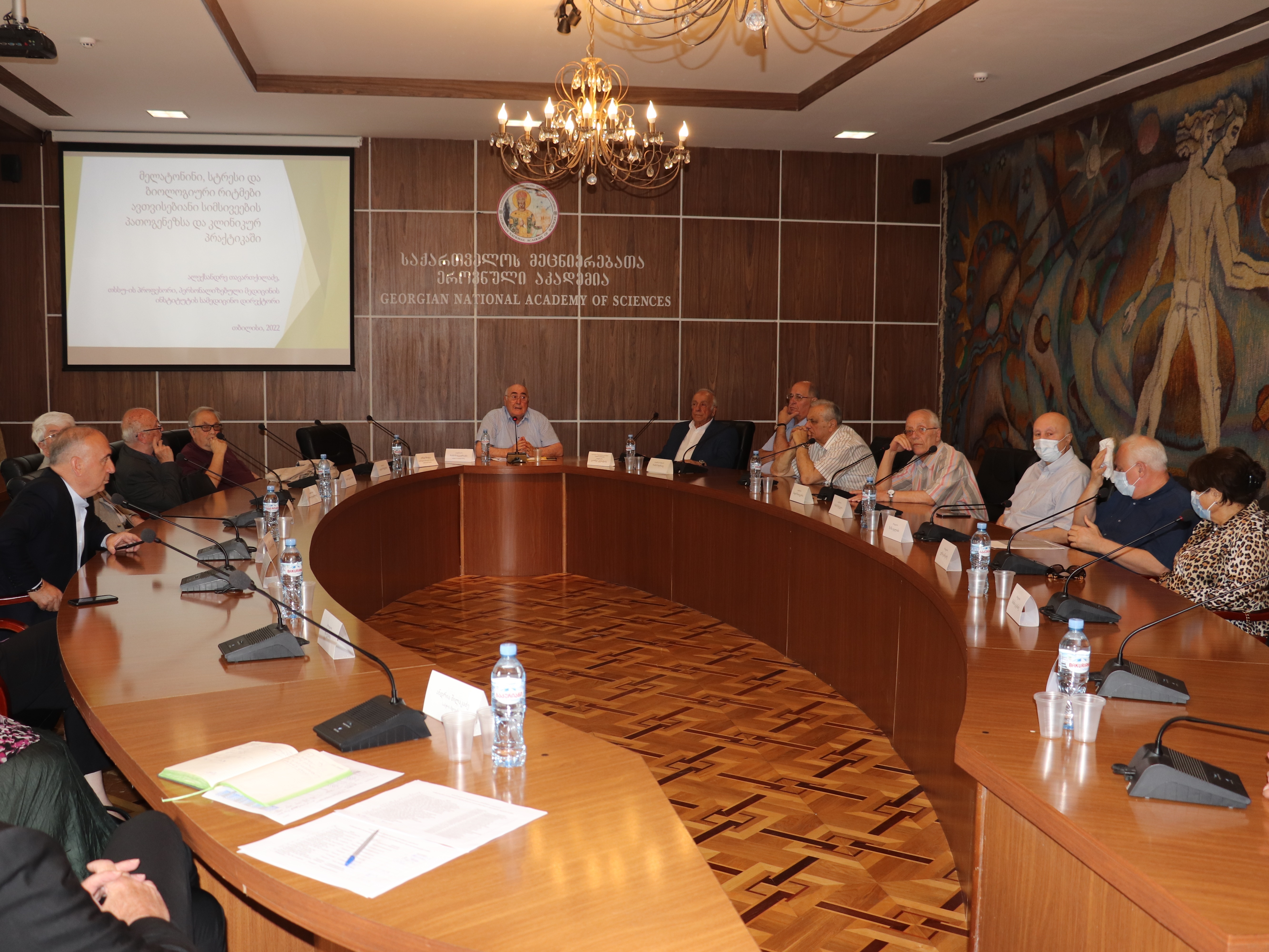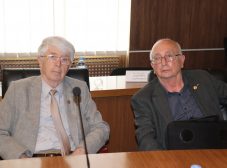
Meeting of the Coordination and Methodological Council of Medical and Biological Sciences
- June 24, 2022
A regular meeting of the Coordination and Methodological Council of Medical and Biological Sciences was held at the Academy of Sciences, at which the head of the Department of Clinical Oncology at the Tbilisi State Medical University, clinical director of the Institute of Personalized Medicine Dr. Alexander Tavartkiladze presented a report entitled “Melatonin, stress and biological rhythms in the pathogenesis and clinical practice of malignant tumors.” A direct correlation in a decrease in the secretion of melatonin in the body and a progressive decrease in the number of water channel receptors on the membranes of healthy cells has been shown. With increasing age, a decrease in the concentration of melatonin in the blood contributes to the development of intracellular water deficiency in practically healthy people and the development of age-related chronic diseases. In experimental models, the gene-protective effects of liposomal melatonin and the ability to activate genes encoding aquaphorins (water channels) was observed. Pathophysiological changes that developed as a result of a deficiency of water channels in healthy cells of cancer patients, possible consequences and mechanisms of correction were also revealed. A direct involvement of the central nervous system in the pathogenesis of cancer was found. As the system regulating melatonin secretion is complex and follows central and autonomic pathways, a pathophysiological situation arises in which melatonin secretion can be impaired, and this change can increase the susceptibility to the disease, increase the severity of symptoms, or change the outcome of the disease.






